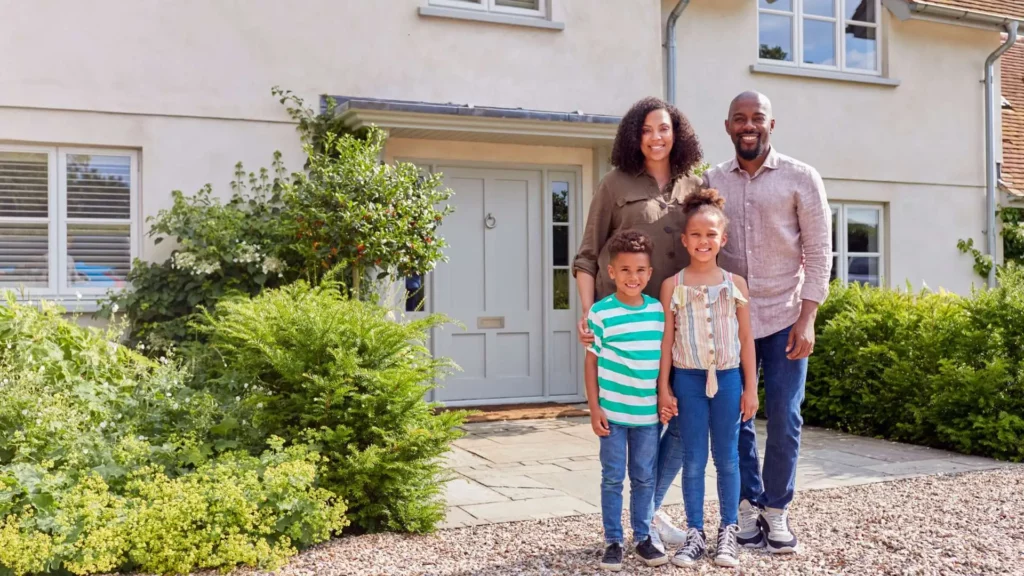Table of Contents
Purchasing a house is a significant event but if one does not have enough knowledge then it can be interpreted as a huge financial blunder. For the majority of Americans, a house not only serves as the residence but also is the biggest single investment that they will ever make. However, many potential buyers do not realize how common home buying mistakes can develop into a grip of financial pressure for long periods.
Having a house is more than simply buying — it is a contract that will have an impact on savings, lifestyle, and future aspirations. Sometimes even the very small things that are overlooked during the buying process can cost thousands of dollars in the long run. Therefore, if you are a person who has never bought a house before or if you are moving to a better place, it is equally important to know what to avoid as it is to know what to do.
The article deals with a discussion on the most common home buying mistakes that suck the life out of the budget and the way to sidestep those mistakes so that one can make the right and sound financial decisions from the start.
Mistake #1 — Not Getting Pre-Approved for a Mortgage
Many eager buyers start browsing listings before getting mortgage pre-approval, only to find out later they can’t afford their dream home. Pre-approval isn’t just a formality — it’s a crucial financial checkpoint that determines how much a lender is willing to finance based on your income, credit score, and existing debts.
Without pre-approval:
- You might waste time looking at homes outside your budget.
- You risk disappointment when actual loan offers fall short of expectations.
- You may lose credibility with sellers who prioritize pre-approved buyers.
Solution: Get pre-approved before you start house hunting. It gives you a clear price range, strengthens your offer, and saves valuable time during negotiations. It’s also a great way to understand your borrowing power and identify any credit issues before they affect your purchase.
Mistake #2 — Not Considering All Homeownership Costs
Many buyers focus solely on the purchase price or mortgage payment when budgeting for a home, forgetting that ownership comes with ongoing expenses. These include:
- Property taxes
- Homeowner’s insurance
- Utilities (water, electricity, internet, heating)
- Maintenance and repairs
- HOA or community fees
- Lawn care and pest control
- Furniture or renovation costs
For instance, a $300,000 home may easily cost 25–30% more annually once you factor in taxes, insurance, and maintenance.
Solution:
Build a detailed monthly budget that includes every expense. Financial advisors recommend allocating at least 1–2% of your home’s value annually for maintenance. Planning ahead ensures your new home enhances your life instead of straining your finances. Here’s more on How to Afford an Apartment.
Mistake #3 — Underestimating the Importance of Location
You can renovate a home, but you can’t change its location. A property’s neighborhood directly affects your cost of living and future resale value. Choosing the wrong location can increase:
- Transportation costs: Longer commutes mean more gas, car maintenance, and time lost.
- Insurance premiums: Certain areas have higher risks for flooding or natural disasters.
- Property taxes: Rates vary widely between counties and cities.
Solution: Research neighborhoods thoroughly. Visit at different times of day, check commute times, review local school ratings, and consider the area’s long-term growth potential. A great location often provides higher appreciation and lower hidden expenses.
Mistake #4 — Focusing Only on the House, Not the Market
Even if you find a house you love, ignoring market conditions can cause you to overpay. Many buyers get emotionally attached and rush to buy without understanding local pricing trends.
In a seller’s market, bidding wars can drive up prices, while a buyer’s market offers opportunities for negotiation and better terms.
Solution: Monitor housing market trends before making an offer. Analyze comparable home sales (comps) and consult a real estate agent who understands your area. They can help you time your purchase strategically and avoid paying more than a property is worth. Learn about Rent vs House Hack: Blended Strategies for Buyers
Mistake #5 — Overstretching Your Budget
It’s tempting to buy “the most house you can afford,” but that often leads to living paycheck to paycheck. Overextending your finances means less flexibility for savings, emergencies, or lifestyle needs.
Example: A couple approved for a $500,000 mortgage might be better off purchasing a $400,000 home and using the difference for savings or renovations.
Solution: Stick to a budget that leaves room for other priorities — retirement savings, vacations, or an emergency fund. Lenders approve you based on maximum eligibility, not comfort. Be realistic about your monthly obligations and financial goals.
Mistake #6 — Ignoring the Importance of a Home Inspection
Skipping a home inspection to save time or money can lead to expensive surprises later. Issues like mold, faulty wiring, or foundation cracks can easily cost thousands to fix.
Solution: Always hire a professional home inspector before closing. Their report can identify hidden defects and give you leverage to negotiate repairs or lower the purchase price. Paying a few hundred dollars upfront can save you thousands down the road.
Mistake #7 — Settling for a High-Interest Mortgage
Not all mortgage offers are equal. Even a 1% difference in interest rate can add tens of thousands of dollars over the loan’s lifetime. Some buyers accept the first offer without comparing rates or understanding loan types.
Solution: Shop around with at least three lenders. Compare fixed and variable rates, closing fees, and total loan costs. A mortgage broker can also help you access better deals. Remember, your goal isn’t just approval — it’s affordability.
Mistake #8 — Not Saving for a Large Enough Down Payment
While it’s possible to buy with as little as 3% down, doing so increases your monthly payments and often triggers private mortgage insurance (PMI), which adds hundreds of dollars per month.
Solution:
Aim for a 20% down payment to eliminate PMI and lower your long-term costs. If that’s not feasible, consider delaying your purchase to save more, or look for a more affordable property. This strategy can save you thousands in interest over time.
Mistake #9 — Skipping Homeowner’s Insurance
Homeowner’s insurance protects your property from damage, theft, and liability claims. Without it, you risk losing everything in the event of a fire, natural disaster, or accident.
Solution: Make insurance a non-negotiable part of your homeownership costs. Compare policies from multiple providers and understand your coverage limits. Bundle your insurance with auto or life policies for additional discounts.
Mistake #10 — Rushing Into a Purchase
Buying a home is exciting — but rushing can lead to regret. Impulsive decisions often result in overpaying or choosing a home that doesn’t meet long-term needs.
Solution: Take your time. Visit multiple properties, ask questions, and evaluate your decision from both emotional and financial perspectives. A home is a long-term commitment, not a quick transaction.
Mistake #11 — Not Accounting for Future Life Changes
Many buyers choose homes that fit their current lifestyle without considering future needs — like marriage, children, remote work, or aging parents.
Solution: Think long-term. Choose a property that allows room for growth or flexibility. Even if you don’t need extra space now, planning ahead prevents another costly move in a few years. Look into Sharing Ownership: Co-Buying a Home with Friends or Family.
Mistake #12 — Underestimating Maintenance and Upkeep Costs
Unlike renting, homeowners are responsible for all repairs and maintenance. A leaking roof, broken water heater, or HVAC repair can quickly derail your budget.
Solution: Set aside at least 1–2% of your home’s value annually for maintenance. For a $400,000 home, that’s $4,000–$8,000 per year. Regular upkeep prevents small issues from turning into big expenses.
Mistake #13 — Overlooking Closing Costs
Many first-time buyers are surprised by the closing costs that come with finalizing a home purchase. These include:
- Appraisal and inspection fees
- Title insurance and recording fees
- Attorney or notary fees
- Transfer taxes and escrow payments
These costs typically range between 3–5% of the home’s price.
Solution: Budget for these expenses in addition to your down payment. Ask your lender for a detailed estimate early in the process so you’re not caught off guard at closing. Use Beem to get beneficial insights on where to cut costs, where to spend and how to save your money with your personalized Budget Planner.
Mistake #14 — Forgetting to Negotiate
Negotiation isn’t just about price — it can include repairs, closing costs, and even move-in dates. Many buyers accept seller terms without realizing how much room there is to bargain.
Solution: Work with an experienced agent who can help you negotiate effectively. Even a small discount or seller-paid closing cost can free up thousands for other priorities.
Smart Home Buying Checklist — How to Stay on Budget
To protect your finances and avoid these common pitfalls, follow this simple checklist:
- Get mortgage pre-approval before house hunting.
- Factor in all homeownership costs — not just the mortgage.
- Save at least 20% for a down payment.
- Always get a professional home inspection.
- Don’t stretch your budget beyond comfort.
- Research locations and market trends.
- Prepare an emergency maintenance fund.
Conclusion — Avoiding Home Buying Mistakes for Financial Stability
The house purchase is one of the most important financial milestones in life, but it is also one of the most likely ways to make unintentional costly mistakes. Usually, the difference between making an investment that is wise and one that is burdensome financially is nothing but the degree of preparation.
If you learn about these home-buying mistakes and take measures to avoid them, you will naturally be on the road to long-term financial success. Do not ever forget that a perfect home should be well within your budget, not only improving your living but also backing your remaining goals for many years to come. Carry out your proper research, schedule your activities properly, and make clever decisions. Your future self and your pocket will be grateful to you. Download the Beem app here.
FAQs on Common Home Buying Mistakes
What’s the most common mistake when buying a home?
Many buyers overlook hidden costs like property taxes, maintenance, and insurance — which can quickly add up after purchase.
How can I avoid overspending on my home purchase?
Get pre-approved, stick to a realistic budget, and resist buying more house than you need. Focus on long-term affordability, not short-term excitement.
Should I hire a real estate agent?
Yes. A qualified agent can help you find the best deal, navigate paperwork, and avoid common negotiation pitfalls — especially valuable for first-time buyers.
Is it better to buy or rent a home?
It depends on your goals and financial stability. If you plan to stay for several years and can handle the ongoing costs, buying often builds equity and long-term value.
How do I calculate closing costs?
Expect 3–5% of the home’s purchase price. Your lender can provide a detailed estimate based on your location and loan type.














































